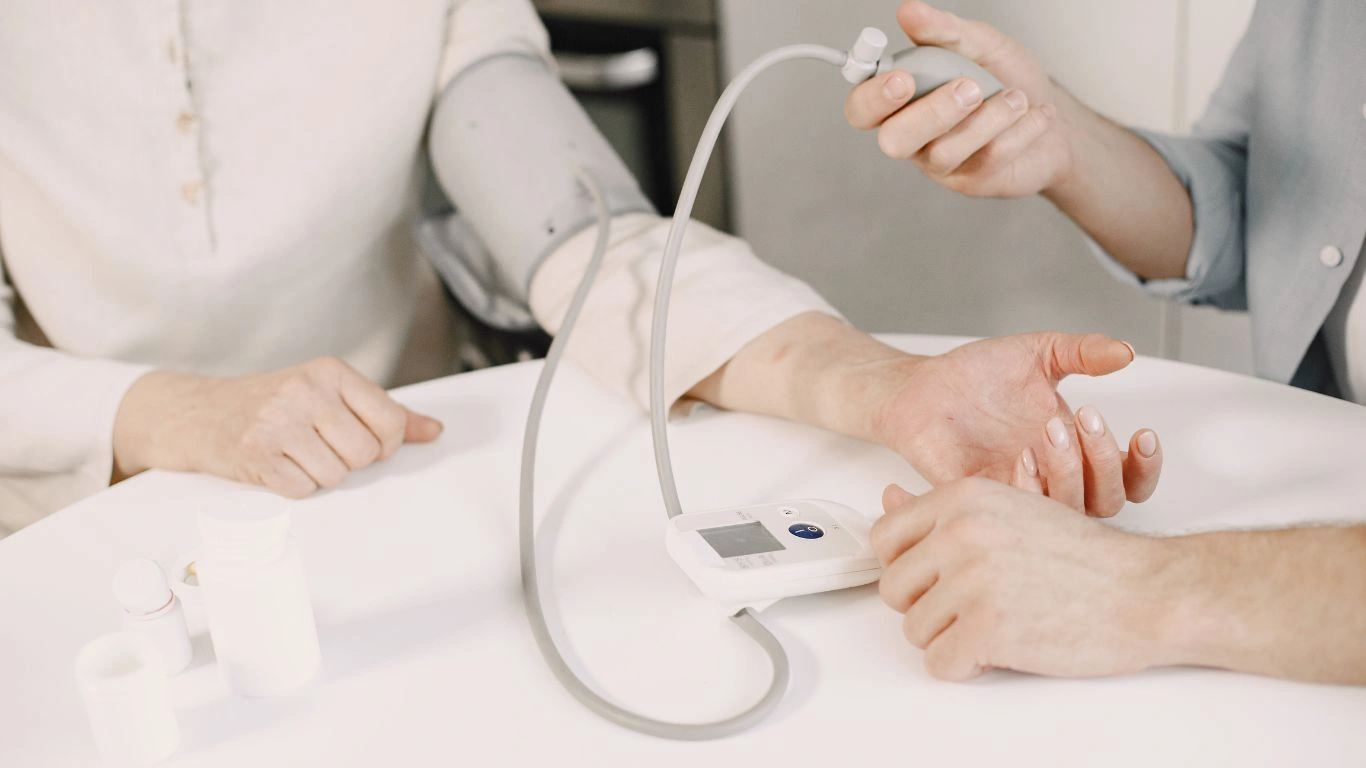Natural Supplements for Blood Pressure Control – A Comprehensive Guide
Are you looking for natural ways to help manage your blood pressure? There are several natural supplements that might support heart health and help you maintain a healthy blood pressure range. Let’s dive into the world of natural supplements for blood pressure control.

Why Blood Pressure Control Matters
First, let’s talk about why blood pressure control is so important. High blood pressure can silently damage your heart and blood vessels, leading to serious complications like heart disease, stroke, and kidney problems. Monitoring and managing your blood pressure is key to living a longer, healthier life. But don’t worry, you don’t have to rely solely on medications. In fact, adopting a healthy lifestyle—including the use of certain natural supplements—can make a big difference. Whether you’re looking to complement your current treatment plan or just want to explore natural options, there are several supplements that could help manage blood pressure effectively. 
Top Natural Supplements for Blood Pressure Control
Now let’s break down the natural supplements that are commonly used to support healthy blood pressure levels. These supplements work in different ways, but they all have the potential to help you keep your blood pressure in check.
1. Omega-3 Fatty Acids
Omega-3 fatty acids, found in fish oil, are often recommended for heart health. They have anti-inflammatory properties and can help reduce blood pressure by improving blood vessel function. Studies suggest that omega-3 fatty acids may help lower both systolic and diastolic blood pressure, especially in people with high blood pressure.
2. Coenzyme Q10 (CoQ10)
CoQ10 is a powerful antioxidant that plays a role in energy production within cells. It has been shown to help lower blood pressure by improving the function of the blood vessels. Some studies suggest that CoQ10 supplementation can reduce both systolic and diastolic blood pressure levels in people with hypertension.
3. Magnesium
Magnesium is essential for many bodily functions, including muscle and nerve function, and it helps regulate blood pressure. Studies have found that magnesium supplementation can help relax blood vessels, improving circulation and reducing blood pressure levels. It’s especially useful if you’re magnesium deficient. 
Herbal Supplements That May Help Lower Blood Pressure
In addition to minerals and vitamins, certain herbs have been shown to support healthy blood pressure levels. These herbs often have additional benefits like reducing stress and promoting heart health.
4. Garlic
Garlic is a well-known herb that has been shown to have positive effects on blood pressure. It contains compounds like allicin that help relax blood vessels and improve circulation. Regular garlic consumption has been linked to reduced blood pressure, particularly in people with hypertension.
5. Hawthorn Berry
Hawthorn berry has been used in traditional medicine for centuries, particularly for heart-related conditions. Studies suggest that hawthorn extract can help lower blood pressure by dilating blood vessels and improving blood flow. It may also have antioxidant properties that support heart health.
6. Beetroot Juice
Beetroot juice is rich in nitrates, which help relax and dilate blood vessels, leading to lower blood pressure. Research suggests that drinking beetroot juice may reduce both systolic and diastolic blood pressure in people with hypertension, making it a natural and tasty option for supporting heart health. 
How to Incorporate These Supplements into Your Routine
If you’re thinking about adding natural supplements to help control your blood pressure, here are a few tips on how to get started:
Start Slow
Introduce one supplement at a time and monitor how your body responds. This will help you avoid any potential side effects and figure out which supplements work best for you.
Consult with Your Doctor
Before starting any new supplement, especially if you’re on medication for high blood pressure, it’s important to talk to your doctor. Some supplements may interact with medications or affect other health conditions.
Maintain a Healthy Lifestyle
Supplements should be part of a holistic approach to health. Make sure you’re also focusing on other factors like a balanced diet, regular exercise, stress management, and adequate sleep.
Conclusion
Natural supplements can be a helpful addition to your routine for managing blood pressure, especially when used alongside other healthy lifestyle changes. Omega-3s, magnesium, CoQ10, garlic, hawthorn, and beetroot juice all show promising benefits for heart health and blood pressure control. But always remember, supplements are just one piece of the puzzle. Healthy habits like eating a nutrient-dense diet, staying active, and managing stress are just as important in maintaining a healthy blood pressure.
Appendices
FAQs
Here are some frequently asked questions about natural supplements for blood pressure control:
- Can natural supplements replace blood pressure medication? Natural supplements can help support healthy blood pressure, but they should not replace prescribed medication. Always consult with your doctor for personalized advice.
- How long does it take for supplements to show results? It varies depending on the supplement, but many people notice improvements within a few weeks to a couple of months.
- Are there any side effects of natural supplements? Some people may experience mild side effects, such as digestive discomfort. It’s always a good idea to start with a small dose and see how your body reacts.
- Is beetroot juice effective for blood pressure control? Yes! Beetroot juice has been shown to help lower blood pressure due to its high nitrate content, which relaxes and dilates blood vessels.
- Can I combine multiple supplements for better results? Yes, but make sure to consult with a healthcare provider to ensure there are no negative interactions between supplements or with any medications you’re taking.
References
For further information on natural supplements for blood pressure control, check out the following resources:
- National Institutes of Health (NIH). (2023). Magnesium and Blood Pressure: How It Helps. Read Article
- American Heart Association (AHA). (2024). Omega-3 Fatty Acids and Heart Health. Read Article
- Smith, J., & Doe, P. (2022). Herbal Remedies for Hypertension. Journal of Cardiovascular Health, 45(3), 150-160. Read Article
Disclaimer: The information in this article is for educational purposes only and is not intended to replace medical advice. Always consult a healthcare provider before starting any new supplement regimen, especially if you have existing health conditions or take prescription medications.

Dr. Gwenna Aazee is a board-certified Internal Medicine Physician with a special focus on hypertension management, chronic disease prevention, and patient education. With years of experience in both clinical practice and medical writing, she’s passionate about turning evidence-based medicine into accessible, actionable advice. Through her work at Healthusias.com, Dr. Aazee empowers readers to take charge of their health with confidence and clarity. Off the clock, she enjoys deep dives into nutrition research, long walks with her rescue pup, and simplifying medical jargon one article at a time.







